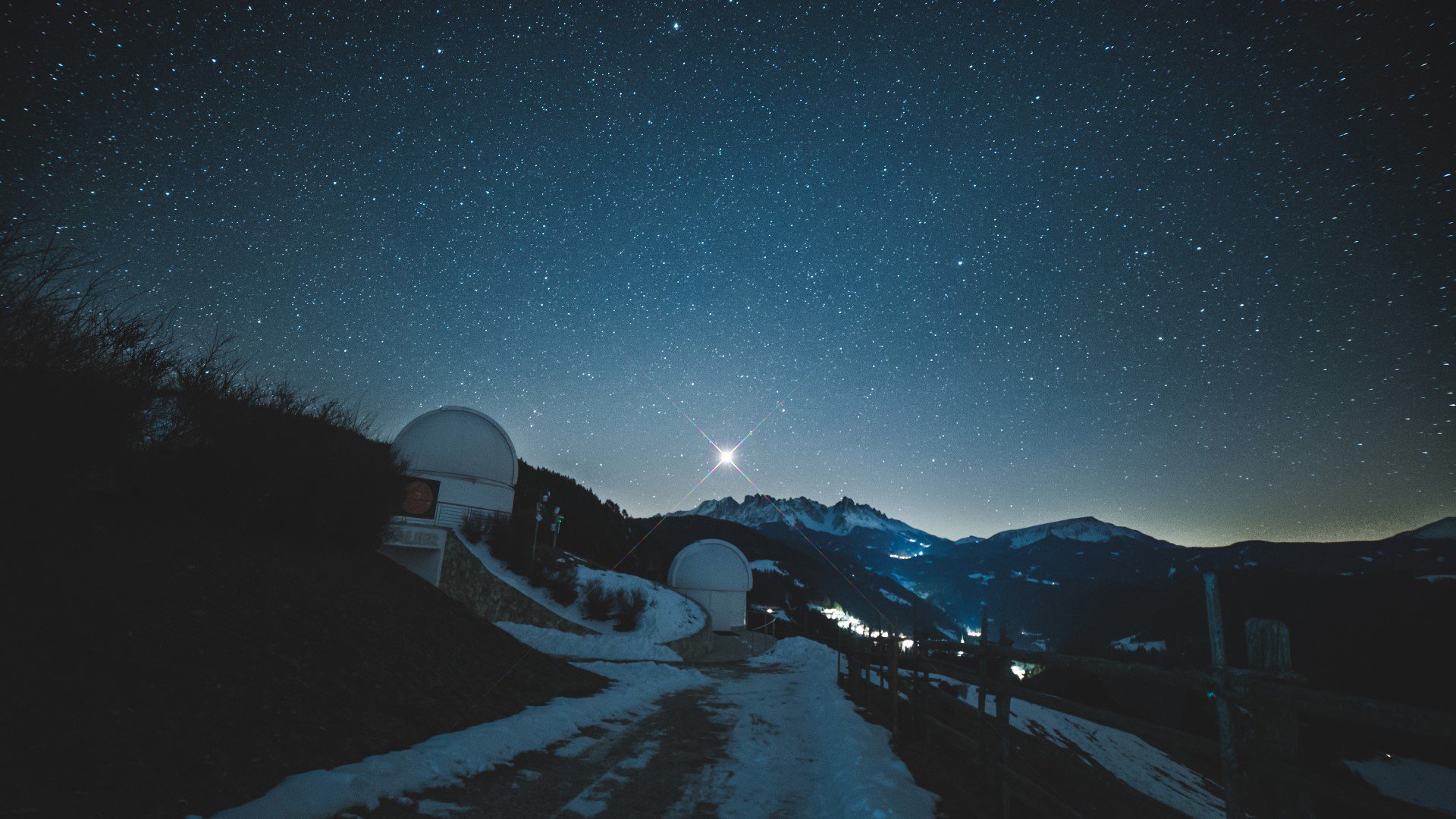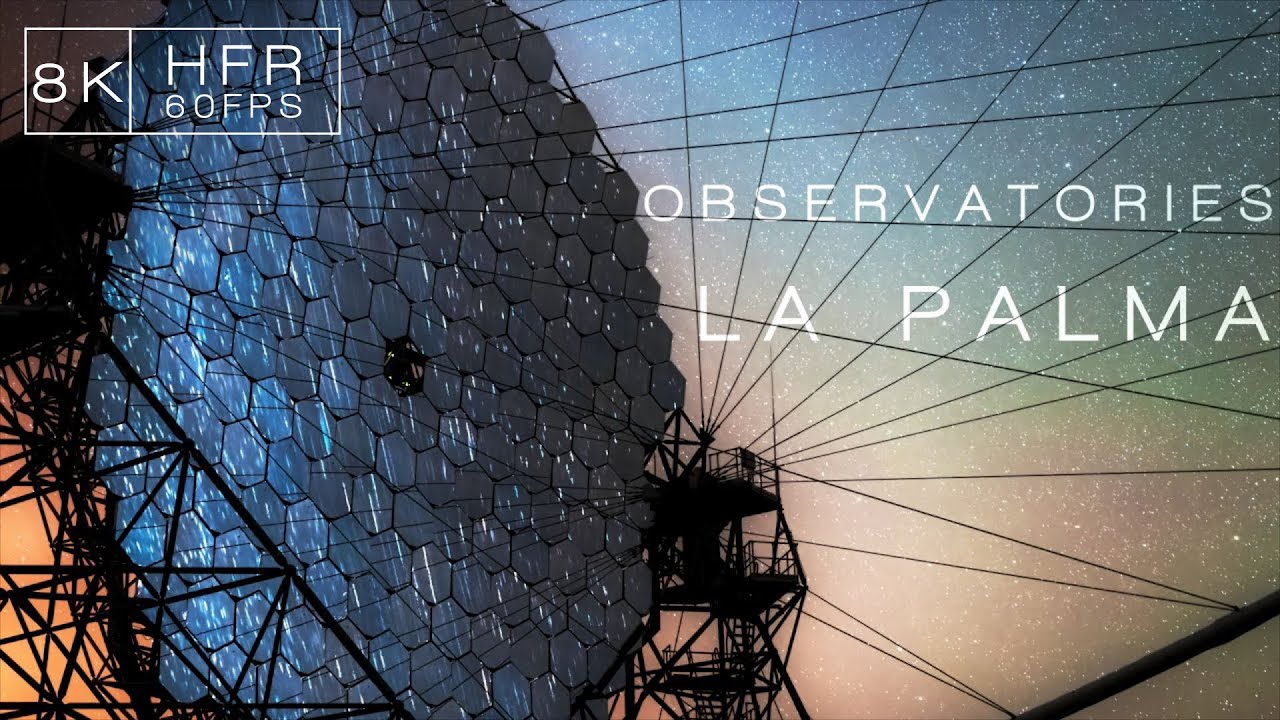Astro Tourism Hotspots - Exploring The Universe's Wonders
Astro-tourism, the practice of traveling to experience celestial events and stargazing, has gained immense popularity in recent years. Enthusiasts from around the world are embarking on journeys to witness the marvels of the universe firsthand. From meteor showers to celestial alignments, our planet offers a plethora of astro tourism hotspots that provide awe-inspiring experiences. Let's delve into some of the most remarkable destinations for stargazers and astronomy aficionados.
Author:Jane RestureMay 31, 20236.1K Shares340.4K Views

Astro-tourism, the practice of traveling to experience celestial events and stargazing, has gained immense popularity in recent years. Enthusiasts from around the world are embarking on journeys to witness the marvels of the universe firsthand. From meteor showers to celestial alignments, our planet offers a plethora of astro tourismhotspots that provide awe-inspiring experiences. Let's delve into some of the most remarkable destinations for stargazers and astronomy aficionados.
What Is Astro Tourism?
Astro-tourism, also known as space tourism or celestial tourism, is a unique and captivating form of travelthat revolves around experiencing and exploring celestial events, astronomical phenomena, and the wonders of the night sky. It involves traveling to specific destinations to witness astronomical occurrences, such as meteor showers, eclipses, auroras, and the dazzling spectacle of stars, planets, and galaxies that adorn the nocturnal canvas.
Astro-tourism goes beyond traditional travel experiences, offering a profound connection to the universe and a chance to contemplate the mysteries of space and time. Enthusiasts and travelers with a passion for astronomy, science, and the natural world are drawn to astro-tourism destinations for the opportunity to engage with the cosmos in a tangible and immersive way. Whether you're a seasoned astronomer, a casual stargazer, or simply someone who marvels at the beauty of the night sky, astro-tourism provides a remarkable way to blend the allure of travel with the fascination of the celestial realm.
The Cosmic Allure Of Astro-Tourism - Seeking The Stars
The fervor ignited by a single eclipse can often unleash a wildfire of fascination in the hearts of many. As the anticipation builds for two forthcoming eclipses visible in the U.S. – the annular solar eclipse on October 14, 2023, and the total eclipse on April 8, 2024 – the charm of astro-tourism is poised to shine even brighter. While these celestial spectacles undoubtedly command attention, the appeal of astro-tourism extends far beyond the shadow of eclipses.
Astro-tourism is a journey into the heart of the universe itself, a portal to experiences that connect us with the timeless grandeur of the cosmos. It's a venture that carries enthusiasts to the pristine darkness of national parks, observatories, and other natural, light-free havens, all in pursuit of celestial marvels. However, the desire to bask in the celestial wonders of astro-tourism isn't solely reserved for those seeking to chase the path of eclipses across the sky.
Recent studies cast a revealing light on the fact that light pollution has obscured the Milky Way from the view of 80% of Americans and a staggering one-third of the world's population. The stars that once graced the nightly sky with their ethereal presence have been masked by the glow of artificial illumination, leaving a starlit void in the lives of millions. This deprivation of the night sky's majesty propels many to embark on astro-tourism journeys, seeking refuge in the dwindling pockets of darkness that remain.
As urban landscapes expand and city lights continue to shine relentlessly, the allure of astro-tourism gains momentum. The very act of stepping away from the artificial glow and embracing the darkness brings a renewed sense of wonder. The heavens, once veiled by urban light pollution, are unveiled with astonishing clarity. The shimmering tapestry of stars, the dance of meteors across the sky, and the celestial ballet of planets unfurl before observers with unparalleled brilliance.
Astro-tourism is a quest to rediscover our cosmic connection – a quest driven by a deep yearning to transcend earthly boundaries and touch the infinite. It beckons to dreamers, explorers, and seekers of beauty, inviting them to venture beyond the city limits, into realms where galaxies collide and stars are born. The experiences garnered from astro-tourism touch not only the intellect but also the heart and soul, fostering a profound appreciation for the universe we call home.
In a world that grows increasingly interconnected yet paradoxically disconnected from the natural world, astro-tourism serves as a reminder that the universe is both our origin and our destination. It's a reminder that the mysteries of the cosmos are not confined to textbooks and research papers but are written across the canvas of the night sky. The allure of astro-tourism, fueled by the desire to bear witness to celestial wonders, beckons us to venture beyond the mundane and immerse ourselves in the extraordinary – a journey that bridges the gap between humanity and the universe, leaving us forever touched by the stars.
Mauna Kea, Hawaii
Nestled atop the Mauna Kea volcano on Hawaii's Big Island, this location is renowned for its clear skies and minimal light pollution. Home to several world-class observatories, Mauna Kea offers visitors a chance to explore the cosmos through powerful telescopes. The site's high altitude and exceptional atmospheric conditions create an unparalleled stargazing experience.
Atacama Desert, Chile
The Atacama Desert boasts one of the driest and clearest atmospheres on Earth, making it a prime location for astro-tourism. The Paranal Observatory, part of the European Southern Observatory (ESO), resides here, and its cutting-edge telescopes provide breathtaking views of the Southern Hemisphere's celestial wonders.
Svalbard, Norway
Located within the Arctic Circle, Svalbard offers a unique opportunity to witness the Northern Lights, also known as the Aurora Borealis. Travelers can experience the ethereal dance of colors in the night sky during the winter months, amidst stunning Arctic landscapes.

OBSERVATORIES | LA PALMA 8K60
NamibRand Nature Reserve, Namibia
This African desert reserve has been designated an International Dark Sky Reserve, making it a perfect spot for stargazing. Visitors can witness the Milky Way stretch across the sky and experience the stark beauty of the desert landscape combined with celestial wonders.
Aoraki Mackenzie International Dark Sky Reserve, New Zealand
New Zealand's Aoraki Mackenzie region is the southern hemisphere's first International Dark Sky Reserve. With strict light pollution controls, this reserve offers pristine stargazing conditions, and the iconic Aoraki / Mount Cook provides a majestic backdrop.
Death Valley National Park, USA
Renowned for its unique geological formations, Death Valley also offers incredible stargazing opportunities. With its low humidity, high elevation vantage points, and limited light pollution, visitors can enjoy a clear view of the night sky's splendor.
Teide National Park, Canary Islands
Teide National Park, situated on Tenerife in the Canary Islands, offers both a spectacular volcanic landscape and remarkable stargazing conditions. The Teide Observatory allows visitors to explore the universe from one of the world's highest vantage points.
Uluru-Kata Tjuta National Park, Australia
This UNESCO World Heritage Site in Australia's Outback provides a unique indigenous perspective on astronomy. The night skies above Uluru and Kata Tjuta are embedded with cultural significance, making the stargazing experience truly enriching.
Joshua Tree National Park, USA
Known for its striking desert landscapes, Joshua Tree National Park becomes a stargazer's paradise at night. The park's distinct Joshua trees provide an otherworldly backdrop to the celestial wonders visible in the clear desert sky.
La Palma, Canary Islands
Another Canary Islands gem, La Palma, has earned the title of UNESCO Starlight Reserve. Its commitment to preserving pristine night skies and promoting astro-tourism makes it a must-visit destination for stargazers and astronomy enthusiasts.

OBSERVATORIES | LA PALMA 8K60
Exmoor National Park, England
Away from the urban glow, Exmoor National Park in the UK offers an opportunity to witness the wonders of the night sky. With its designation as Europe's first International Dark Sky Reserve, Exmoor provides a pristine environment for stargazing and contemplating the cosmos.
Kitt Peak National Observatory, USA
Perched on a mountain in Arizona, Kitt Peak Observatory is a hub for astronomical research and public engagement. Visitors can partake in guided tours and observe celestial objects through various telescopes, gaining insights into the work of astronomers and the beauty of the night sky.
Observatorio Del Roque De Los Muchachos, Canary Islands
Situated on La Palma in the Canary Islands, this observatory boasts some of the world's most advanced telescopes. The site's altitude, coupled with clear skies, makes it a fantastic spot for both amateur and professional astronomers.
Galloway Forest Park, Scotland
Scotland's Galloway Forest Park offers a tranquil setting for exploring the cosmos. Designated as the UK's first Dark Sky Park, it invites visitors to immerse themselves in the majesty of the night sky while enjoying the serenity of the surrounding landscape.

Dark Skies - Galloway Forest National Park
Chaco Culture National Historical Park, USA
In addition to its rich cultural history, Chaco Culture National Historical Park in New Mexico is renowned for its exceptional celestial alignments. The ancient Puebloan structures are thought to have been designed with astronomical events in mind, creating a unique blend of archaeology and astronomy.
San Pedro De Atacama, Chile
Nestled within the Atacama Desert, the village of San Pedro de Atacama offers a gateway to some of the world's most renowned observatories. Visitors can attend stargazing tours and witness the brilliance of the Southern Hemisphere's night sky.
Jasper National Park, Canada
As Canada's largest Dark Sky Preserve, Jasper National Park provides an idyllic setting for observing constellations, meteor showers, and the dance of the Northern Lights. The park's commitment to preserving natural darkness ensures a memorable astro-tourism experience.
Tivoli Astrofarm, Namibia
Tivoli Astrofarmoffers a unique blend of astronomy and hospitality. Nestled in the Namibian desert, this destination provides guided stargazing sessions and telescope observations, making it an unforgettable experience for both novice and seasoned stargazers.
Palomar Observatory, USA
Located in California, Palomar Observatory houses the famous Hale Telescope, which has played a significant role in astronomical discoveries. Guided tours offer insights into the history of the observatory and the monumental discoveries made using its telescopes.
Northern Norway
Beyond the Arctic Circle, Northern Norway provides a front-row seat to the mesmerizing Aurora Borealis. With its stunning natural landscapes and the ethereal dance of the Northern Lights, this region offers a unique blend of astro-tourism and Arctic exploration.

Spectacular Norway Northern Lights | National Geographic
Aoraki / Mount Cook National Park, New Zealand
Nestled within the Southern Alps, Aoraki / Mount Cook National Park boasts not only New Zealand's tallest peak but also some of the planet's darkest skies. The Cosmic Experience at the Hermitage Hotel offers guided stargazing sessions, enhancing the enchantment of this remarkable location.
Namibia's Skeleton Coast
Venture into the remote reaches of Namibia's Skeleton Coast, and you'll be rewarded with a celestial spectacle amidst stark landscapes. The combination of open horizons and minimal light pollution makes this a destination where the Milky Way shines brightly, casting an ethereal glow upon the desert.
Sedona, Arizona, USA
Known for its red rock formations and spiritual energy, Sedona also offers captivating night skies. Sedona's mystical aura blends seamlessly with its astro-tourism appeal, inviting visitors to explore both the inner and outer cosmos.
Kiruna, Sweden
Nestled in the Arctic Circle, Kiruna offers a remarkable opportunity to witness not only the Northern Lights but also the Midnight Sun during the summer months. This duality of light phenomena creates an unparalleled experience of celestial contrasts.
Isle Of Sark, Channel Islands
Designated as a Dark Sky Community, the Isle of Sark takes light pollution seriously. By limiting artificial light, this small island becomes a haven for stargazers, offering unobstructed views of the night sky and a reminder of the beauty of natural darkness.

A Lap of Sark
Big Bend National Park, Texas, USA
Situated along the Texas-Mexico border, Big Bend National Park showcases the unspoiled beauty of the Chihuahuan Desert. Its International Dark Sky Park designation ensures that visitors can appreciate the stars just as they have been observed for centuries.
Maasai Mara National Reserve, Kenya
Known for its stunning wildlife, the Maasai Mara also offers a brilliant celestial display. Experience the magic of the African savannah under the starlit sky, where constellations and animal silhouettes merge into a captivating panorama.
Haida Gwaii, Canada
Escape to Haida Gwaii, an archipelago off the coast of British Columbia, for a celestial retreat. The pristine beaches and temperate rainforests provide a serene backdrop for stargazing, allowing you to connect with the cosmos in a tranquil environment.
La Serena, Chile
La Serena serves as a gateway to some of Chile's most renowned observatories. Immerse yourself in the vibrant culture of the city and then venture into the desert to witness celestial wonders that have captivated astronomers for generations.
The Impact Of Astro Tourism
Astro-tourism, also known as space tourism or astrotourism, is a burgeoning trend that involves traveling to various destinations with the purpose of experiencing celestial events and exploring space-related attractions. This emerging form of tourism offers unique opportunities for enthusiasts and curious travelers to engage with the wonders of the universe, contributing to a broader understanding of astronomy, space science, and our place in the cosmos. Let's delve into the impact of astro-tourism and how it's shaping the way we perceive and engage with the universe.
- Educational Opportunities:Astro-tourism provides a platform for individuals to learn about astronomy, cosmology, and space exploration firsthand. Many astrotourism destinations offer guided tours, workshops, and lectures conducted by experts in the field. This hands-on approach fosters a deeper appreciation for the universe, encouraging people to take a more active interest in science and technology.
- Economic Benefits:Astro-tourism has the potential to inject new life into local economies. As tourists flock to designated dark-sky areas or observatories, businesses catering to their needs, such as hotels, restaurants, souvenir shops, and transportation services, can flourish. This influx of visitors creates jobs and stimulates economic growth in regions that may have previously relied on declining industries.
- Environmental Awareness:Dark-sky destinations, which are areas with minimal light pollution, benefit from astro-tourism by promoting awareness about the importance of preserving natural nightscapes. Communities and authorities are often motivated to implement measures to limit light pollution and protect the night sky, which in turn benefits not only the visiting astro-tourists but also the local ecosystem and wildlife.
- Scientific Collaboration:Astro-tourism destinations often collaborate with scientific institutions, fostering partnerships that can contribute to research and advancements in space science. Observatories and research centers may offer public access to their facilities, encouraging engagement between researchers and the general public. This bridge between scientific exploration and public interest can lead to innovative discoveries and breakthroughs.
- Inspirational Impact:For many, astro-tourism provides an awe-inspiring experience that triggers a renewed sense of wonder and curiosity. The sight of celestial phenomena like meteor showers, eclipses, and other astronomical events can evoke a deeper understanding of the vastness and beauty of the cosmos. Such experiences can have a lasting impact on individuals, encouraging them to explore new areas of interest and broaden their horizons.
As astro-tourism gains momentum, more individuals are seeking opportunities to connect with the universe in ways that were once reserved for professional astronomers. Whether through stargazing, visiting space museums, or participating in educational programs, this form of tourism is reshaping the way we perceive and engage with the cosmos.
If you're interested in exploring the astrological aspects of the universe alongside your astro-tourism endeavors, you might also want to check out today's horoscope on JoyNumberfor insights that could complement your cosmic journey.
People Also Ask
What Is The Meaning Of Astro Tourism?
Astro-tourism, also known as space tourism or astrotourism, refers to the practice of traveling to specific destinations or events with the primary purpose of experiencing celestial phenomena, observing astronomical events, and engaging with space-related attractions. It involves visiting locations that offer dark skies, observatories, planetariums, and other facilities that provide opportunities for stargazing, learning about astronomy, and experiencing the wonders of the universe. Astro-tourism combines elements of education, leisure, and scientific exploration, allowing travelers to connect with the cosmos and gain a deeper understanding of the universe.
What Is An Eco Tour Company?
An eco tour company, short for "ecotourism tour company," specializes in providing travel experiences that prioritize environmental conservation, sustainability, and responsible tourism practices. These companies design their tours and activities in a way that minimizes negative impacts on the environment, promotes local culture and communities, and contributes to the preservation of natural resources. Eco tour companies often focus on offering experiences that are educational, immersive, and respectful of the ecosystems and communities they operate in. Examples of eco-friendly practices may include using eco-friendly accommodations, supporting local economies, and adhering to ethical wildlife viewing guidelines.
Is Space Tourism A Thing?
Space tourism involves sending private individuals, who are not professional astronauts, into space for recreational, adventure, or educational purposes. Companies like SpaceX, Blue Origin, and Virgin Galactic have been at the forefront of this industry, working on developing commercial spacecraft and suborbital flights that can take paying customers on short journeys beyond Earth's atmosphere. While space tourism is still in its early stages and is currently accessible only to a select few due to its high cost, it represents a growing interest in making space travel more accessible to the general public in the future.
Conclusion
Astro-tourism unveils the universe's grand tapestry, reminding us of our shared connection to the stars and planets. Whether you're traversing desert sands, ascending mountain peaks, or standing on polar ice, the cosmos has a way of inspiring awe and introspection. These astro-tourism hotspots are more than destinations; they're invitations to embark on a cosmic odyssey that broadens horizons and nurtures the spirit. As you journey through these celestial wonderlands, remember that the universe is both a canvas and a mirror, reflecting both the mysteries of space and the depths of your imagination.

Jane Resture
Author
Since she embarked on her first world trip in 2002, Jane Resture spent the past decades sharing her personal journey and travel tips with people around the world. She has traveled to over 80 countries and territories, where she experienced other cultures, wildlife she had only read about in books, new foods, new people, and new amazing experiences.
Jane believes that travel is for everyone and it helps us learn about ourselves and the world around us. Her goal is to help more people from more backgrounds experience the joy of exploration because she trusts that travel opens the door to the greatest, most unforgettable experiences life can offer and this builds a kinder, more inclusive, more open-minded world.
Latest Articles
Popular Articles